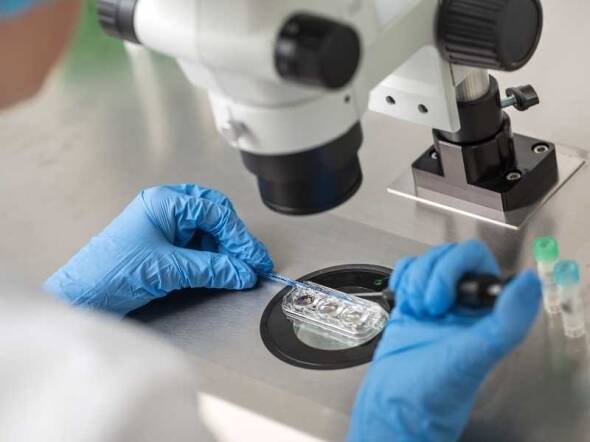Fertility research has revolutionized the way we understand and treat infertility, making the seemingly impossible possible. Decades of fertility research have uncovered many medical breakthroughs, such as why abnormal embryos cannot lead to healthy pregnancies, when to perform an embryo biopsy for optimal results, and how to test for chromosomal abnormalities. These advancements have transformed infertility treatment, allowing our clinics to achieve high success rates while using safer, more effective methods. Fertility research isn’t just about science—it’s about hope, progress, and turning dreams into reality for countless patients.
How did fertility research evolve to where it is today?
How did we discover that some embryos mature slower than others or develop under specific oxygen levels? Why is the uterus only receptive to an embryo for about 24 hours each cycle?
How did we determine that abnormal embryos do not lead to healthy pregnancies? Who would have imagined that an embryo biopsy is better performed on day five or six rather than on day three of growth? How did we figure out how to test embryos for their chromosomal makeup? Lastly, how did we achieve high live birth rates by transferring just one embryo at a time?
Struggling to Conceive? This Guide Changes Everything
Discover the expert strategies to finally start your family—download your free guide by Dr. Marcy Maguire now!
How, in other words, can we perform the seemingly impossible every day and turn patients into parents, sometimes against all odds?
These questions have a simple, one-word answer: fertility research.
By studying every one of these questions—and thousands more—fertility academics, researchers, scientists, and doctors worldwide have collectively advanced the field.
As a result of this research and parallel advances in technology, infertility has developed faster than almost all other medical fields in the last few decades, all to the benefit of patients.
Contrary to what many believe, not every fertility doctor or clinic does research. Only a minority of clinics and doctors do research, particularly in private practice settings.
If you are struggling to conceive and trying to figure out which clinic to go to, consider making an appointment at a research clinic. You’ll be surprised at how much easier your search will be after including this filter—the resulting list will be much smaller and full of higher-quality clinics.
Clinics that conduct research in-house and publish their findings are at the forefront of the field. Consequently, their doctors are often the most knowledgeable, skilled, and experienced.
When you are treated by the same doctor who studies the very questions that matter to you – like how can you, with your unique fertility challenges, achieve a healthy, ongoing pregnancy in the shortest time possible – it makes a difference. Your chances of success increase because you’re being cared for by the best.
If you’re still looking for a fertility clinic or are unhappy with your existing provider, look for a clinic that conducts research—you’ll be glad you did.

